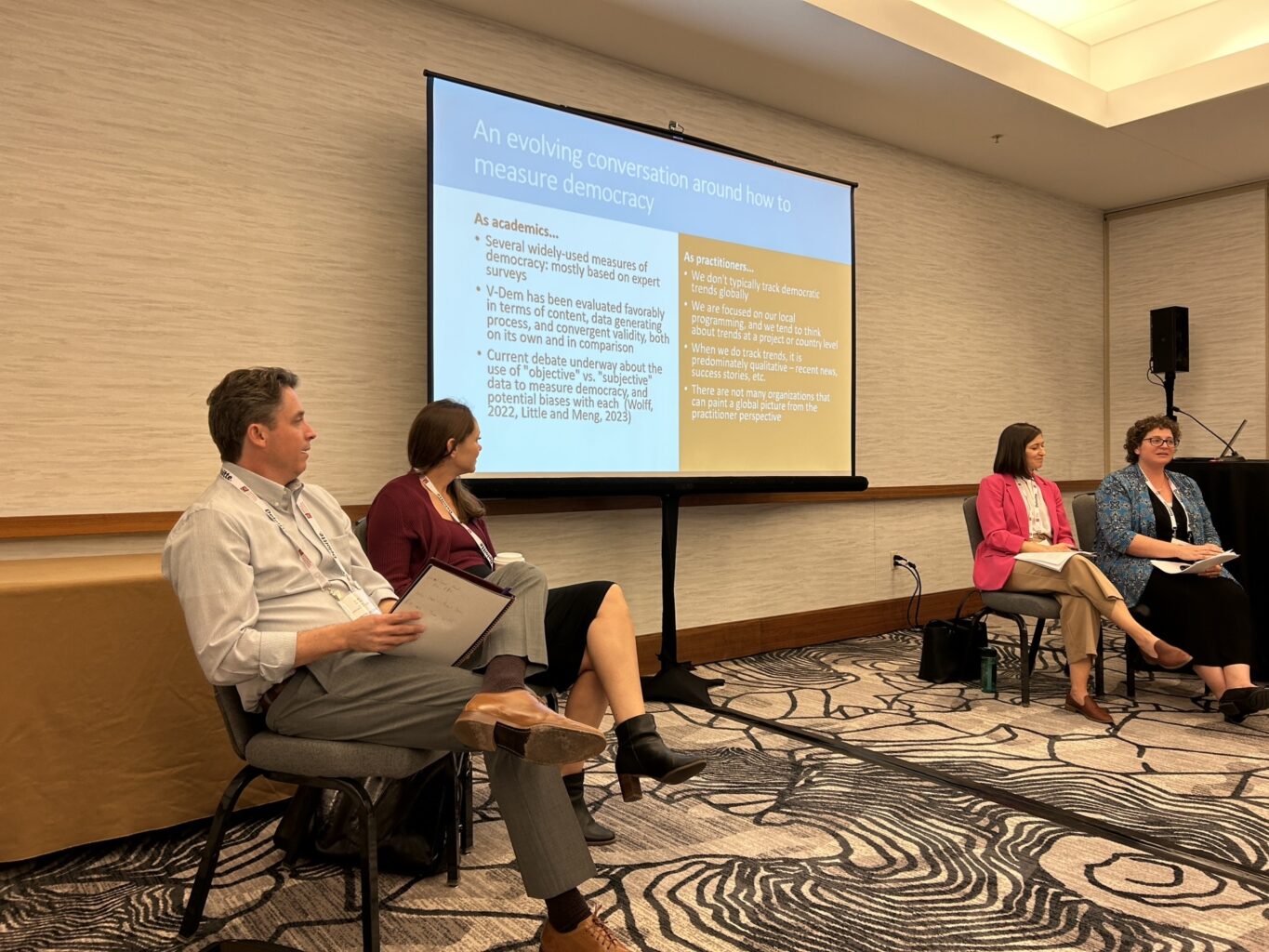Several academic and “pracademic” datasets tracking democratic trends have been published as an open source with the aim of facilitating research and learning, as well as improving democracy assistance. The story the data tells is currently quite bleak with the level of democracy in decline over the last decade, with more autocracies than liberal democracies in 2022 (Papada et al., 2023). At the American Evaluation Association’s 2023 Conference, the Consortium for Elections and Political Process Strengthening (CEPPS) shared the story of democratic erosion as conveyed through academic datasets, as well as the experiences and data of practitioners. Both academics and practitioners agree that we are seeing a global trend of democratic decline driven by information deficits and degrading freedom of expression. However, practitioners emphasize the challenge of weakening democratic institutions in the face of autocratic attacks, while academics highlight the role of citizen participation and deliberative democracy.

The Evolution of Measures of Democracy
On the cutting edge of nuanced and multidimensional democratic indices is the Varieties of Democracy (V-Dem) Project. Their dataset, first released in 2016, boasts historical time-series data going back to the year 1900, coded by a global network of 3,700 country experts. Through interactive dashboards and a variety of reports, V-Dem provides a historical and academic perspective on the story of democratic consolidation, and more recently, backsliding. While assessed as outperforming other measures of democracy such as Polity IV or the Freedom House Index (Boese, 2019), the academic perspective articulated through statistical analysis of V-Dem data has come under recent critique for “the ways in which academic research relates to the outside world” and its emphasis on liberal versus pluralistic or non-Western democratic norms (Wolff, 2022, Little and Meng, 2023). Likewise, V-Dem and other commonly employed academic data measures of democracy are high-level, slow-moving, and updated infrequently (annually or less often). Further, they lack complementary, qualitative descriptions to aid interpretation, thus, limiting their utility for real-time storytelling, or informing targeted democratic assistance.
An Alternative Practitioner Perspective
Recognizing this gap, in 2019, CEPPS experimented with building a global democratic trends dataset. The data collection approach was refined in 2022 based on practitioner focus groups across six geographic regions and a systematic desk review of democratic trends across academic literature and practitioner reports. Throughout 2023, approximately 150 practitioners, working directly on democracy assistance programs, provided quarterly data for more than 60 countries. While not as comprehensive in its reach, or as sophisticated in its methodology, the dataset addresses some of the utility limitations of V-Dem and other academic democracy measures. Specifically, it is collected and analyzed quarterly rather than annually, includes both quantitative and qualitative observations from practitioners in the field, and purports to capture mid-level leading indicators of democratic shifts.
Key Take-Aways
These findings, largely consistent across the academic-practitioner divide, underscore the importance of democracy assistance in an era of growing uncertainty. They also suggest that assistance should focus on ensuring information integrity and supporting the independence and balance of power across democratic institutions.